Welcome
Funded by a British Academy/Leverhulme research grant, this project investigates the temporal experience of austerity and food access exclusion with the purpose of helping vulnerable individuals navigate their way out of food poverty.
Project Overview
Fourteen million people live below the poverty line in the UK (Joseph Rowntree Foundation, 2017), and over 1.3m three-day emergency food supplies were donated in 2017-18 (Trussell Trust, 2018). Existing research highlights the escalation of emergency food support, user motivations and experiences (Garthwaite, 2016; Loopstra et al., 2016; Loopstra et al., 2018). However, there is an urgency for further research into the support mechanisms needed to assist individual transitions out of food poverty.
As emergency food is accessed by over 8 million of families who have one person in work (Joseph Rowntree Foundation, 2017), this research aims to gain a more nuanced understanding of the types of additional support offered by emergency food providers and how they assist vulnerable individuals in navigating this period of liminality.
Our research will draw on the experiences of a range of key emergency food providers and users of these food services in the Salford and Birmingham areas of the UK. Both of these areas have experienced a significant increase in levels of food poverty recently and are among the 10% most deprived local authority districts.
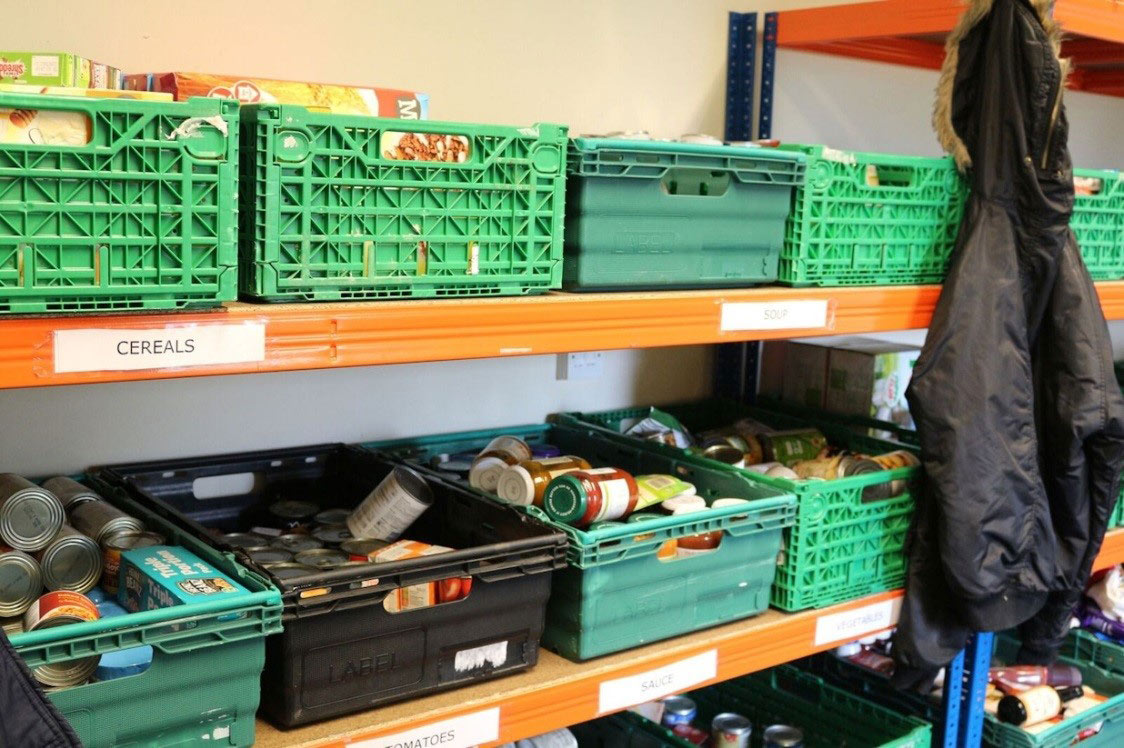
Understanding Food Poverty and the Transitional Behaviour of Vulnerable Individuals
Professor Morven McEachern and her colleagues from the University of Birmingham (Dr Caroline Moraes) and the University of Salford (Prof. Lisa Scullion, Dr Andrea Gibbons) welcomed delegates from across the UK to a British Academy/Leverhulme end of project dissemination event at Media City, Salford which investigates the temporal experience of austerity and food access exclusion in the Greater Manchester and city of Birmingham. The event brought together stakeholders across business, government, charities, academia and society to discuss key questions around food poverty and poverty in general.
Featuring local government perspectives, Cllr. John Cotton, Labour Councillor for Glebe Farm & Tile Cross Ward, Birmingham, expressed his ‘moral outrage’ at the growing need for foodbanks and of rising food poverty in general. Similarly, Paul Dennett, City Mayor of Salford, criticised the state of 21st Century Britain concerning rising food poverty and called for social change.
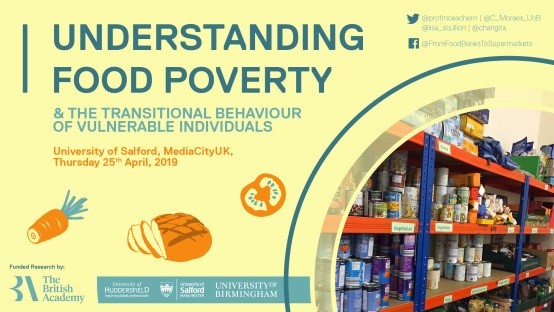
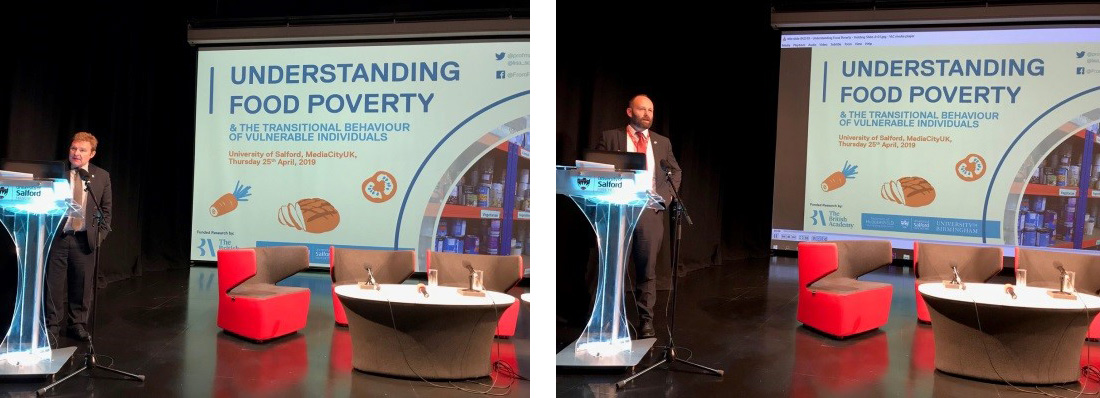
Drawing on the experiences of a range of key emergency food providers and the users of these food services in the Greater Manchester and Birmingham, our findings revealed that a state of prolonged vulnerability exists for too many people, leading them to transition from emergency food consumption states to a longer-lasting use of alternative types of food aid such as food clubs or pantries. Contrary to the dominant media discourse, the stigma attached to using community-based food banks and food aid was evident and continues to act as a barrier to seeking support. Aside from the food itself, meeting new people, forging new relationships of mutual support and the food aid services help participants to engender a sense of community, reciprocity and duty of care towards themselves, others and the community volunteers who help. This is particularly the case in independent food aid providers. All of these elements, in turn, help to create positive coping strategies that help people to deal with the negative effects of perceived stigma, personal circumstances and lack of support from core welfare systems and government services.
While many food aid providers discussed at length the range of support activities they had on offer, there were concerns this could contribute to advancing the institutionalisation of food banks in the UK. Therefore, it is essential to concede that we cannot resolve food insecurity without addressing the impact of welfare reform and austerity, to which much of food poverty is attributable.
The final part of the event involved a panel discussion on our research findings and the challenges of eliminating poverty, which involved the viewpoints of Mike Hawking (Joseph Rowntree Foundation), Catherine Connors (Salford City Council), Tom Skinner (Greater Manchester Poverty Action) and Kate Cooper (Birmingham Food Council).
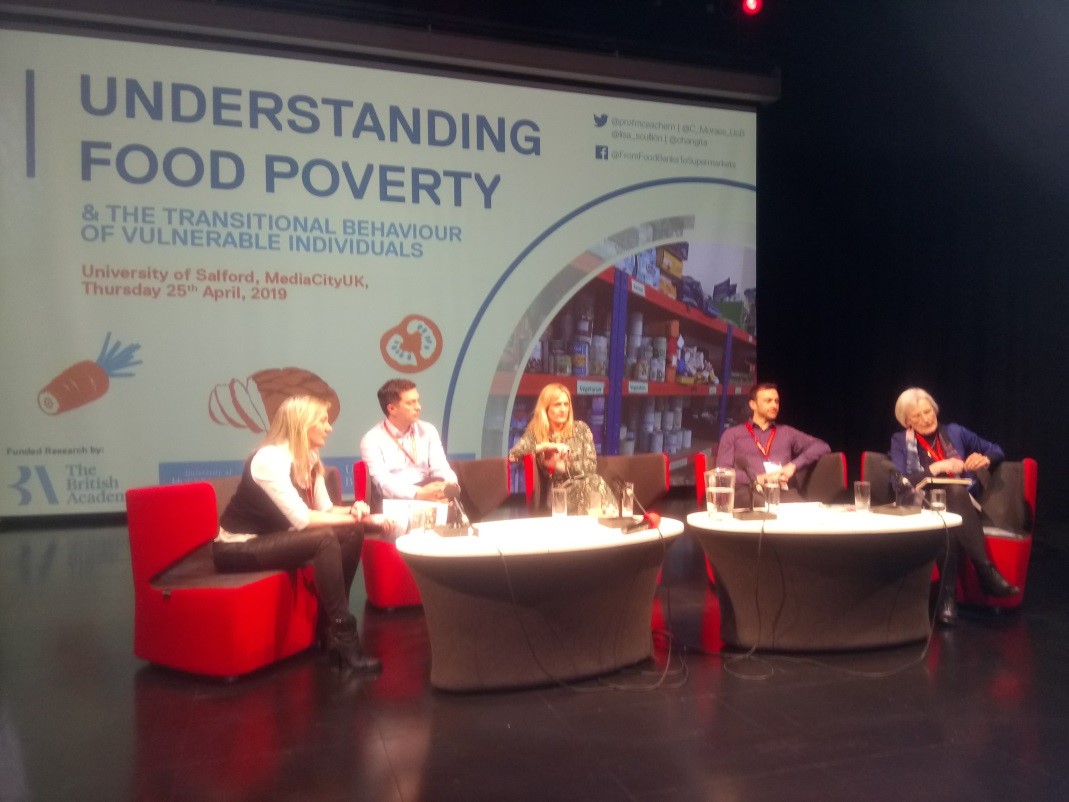
Downloads
Research Brief
Research brief: Understanding food poverty and the transitional behaviour of vulnerable individuals.
The Project Team

Prof. Morven G. McEachern
Professor of Sustainability, University of Huddersfield
Morven's research interests focus on business and consumer behaviour within a variety of sustainable production and consumption contexts, but particularly around food.

Dr Lisa Scullion
Reader in Social Policy, University of Salford
Lisa is Reader in Social Policy and Associate Director at the Sustainable Housing & Urban Studies Unit (SHUSU) at the University of Salford. Over the last 12 years, Lisa has led and delivered research assessing social welfare needs and community experiences.

Dr Caroline Moraes
Senior Lecturer in Marketing, University of Birmingham
Caroline's research interests include marketing and consumer ethics, consumer activism, power issues in consumer culture and ethical issues in consumer research.
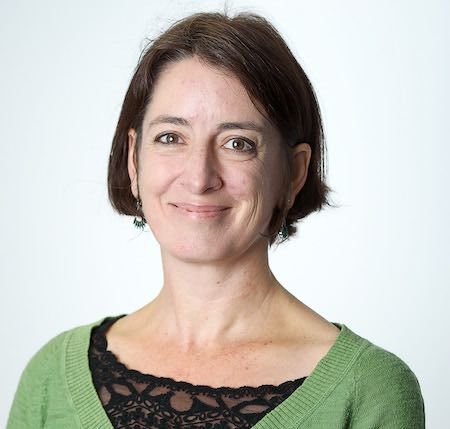
Dr Andrea Gibbons
Researcher, University of Salford
Dr Andrea Gibbons is an Urban Planner and Geographer with experience in the UK and US as an educator and community organizer on environmental and economic justice issues.

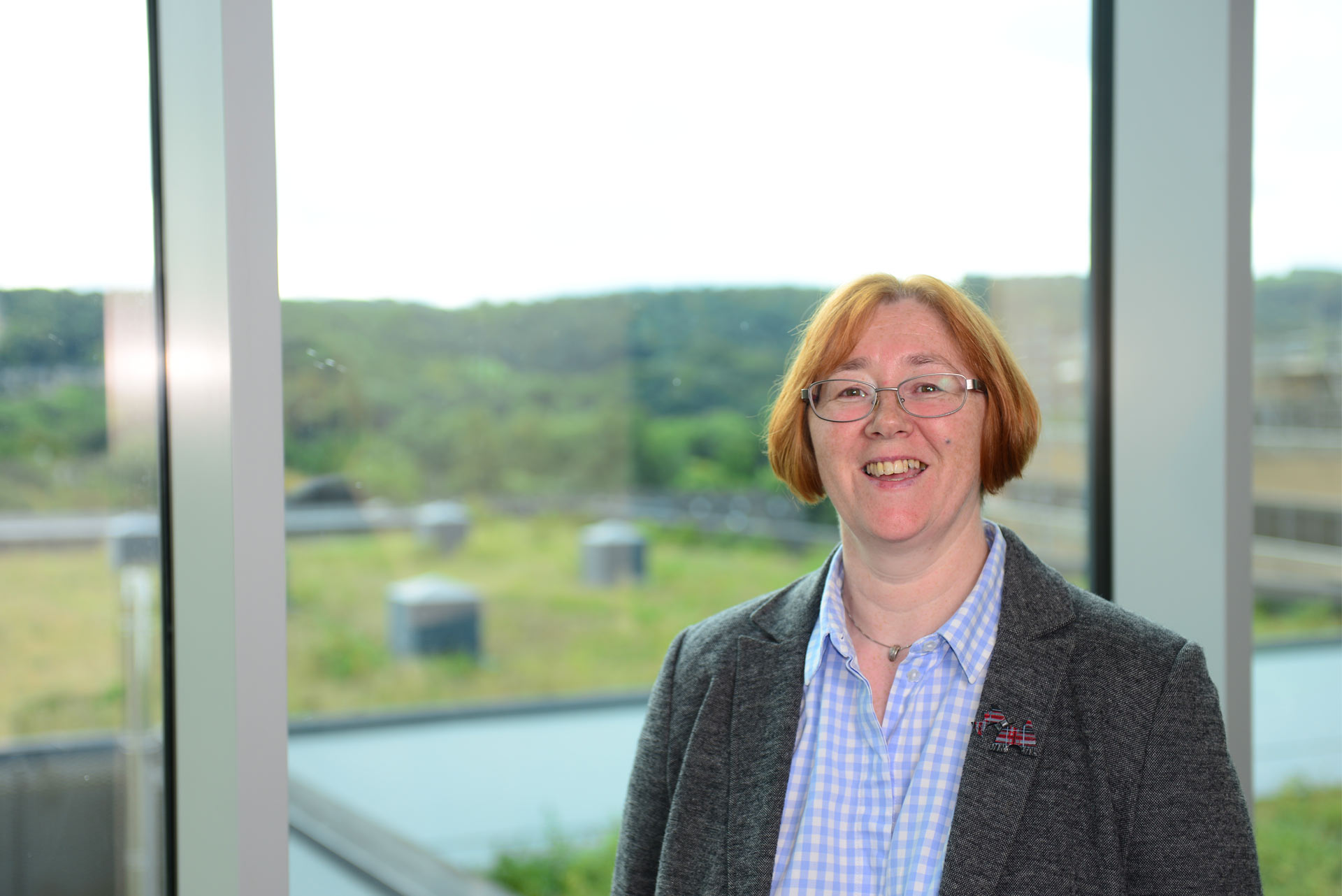
Follow Us
Stay informed of our research news, outputs, publications and relevant event